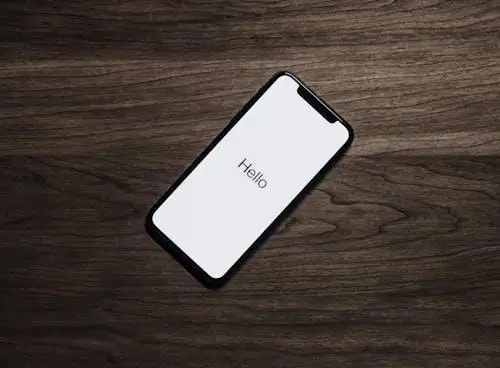Hello dear readers! Are you looking for a mobile plan suited to you and your needs? If so, you’re not alone, and hopefully this article can help you in finding it.
The process of finding one can be a lot to take in at once, and for good reason. When it comes to finding the right mobile plan, it wouldn’t be a stretch when comparing it to navigating a maze.
There are many twists and turns, for instance, and if you aren’t careful or informed, you will end up feeling lost and overwhelmed all at once. Hopefully, when you finish reading, that won’t be the case, and you will by the end have the knowledge and confidence to find the best mobile plan for you. So, without further ado, let’s get into it!
Types of Mobile Plans
Before going into what the best mobile plan is for you, it may be prudent to first learn more about the different types of mobile plans available. And there are more than a few, each of them bringing their own advantages to the customer market. Let’s go into detail on some of them.
1. Prepaid Plans
A prepaid plan is a service that you pay for as you go. You pay money upfront for a phone with a set number of limits to texts, data, call minutes, etc. Once they are used up, you can refill them with more money and start over.
Features
- No Contracts: You aren’t locked into a long-term agreement like other major providers.
- Budget-Friendly: You only pay for what you use, making it easier to control your expenses.
- No Credit Checks: Ideal for those with poor or no credit history.
Who is it Best For?
- Students
- Travelers
- Light Phone Users
2.Postpaid Plans
Postpaid plans are those that involve a monthly bill to pay for. They tend to come with a contract that can be up to or more than a year.
Features
- Billing Cycles: Payments are made monthly based on your amount of usage.
- Credit Checks: Carriers usually check your credit history to check your potential approval.
- Bundled Services: Often include additional perks like access to streaming services or device financing.
Who is it Best For?
- Families
- A Stable Budget
- Heavy Phone Users
3. Family Plans
Arguably the best plan in terms of offer and availability. Family plans are designed to be used for multiple users under one single account. These plans come with a bundle of shared items like data, minutes, texts, and more.
Features
- Savings: Has reduced rates per line compared to individual plans.
- Shared Data: Pools data across all family members, making it more efficient.
- Convenience: Has one bill for all users, making the process of managing payments simpler.
Who is it Best For?
- Large Households and Families
- Those Wishing to Save Money
- For Groups
4. Unlimited Plans
As the name suggests, unlimited plans are those that have no cap on what you wish to use whether it’s minutes, texts, data, etc. Whatever you use, you will never run out of.
Features
- Unlimited Data: No limiton how much data is available for you to use.
- Potential Throttling: It is possible that speeds may slow down after reaching a certain amount of data usage.
- Fair Usage Policies: May be terms that might restrict certain types of usage to prevent network overload.
Who is it Best For?
- Data-Hungry Users
- On-the-Go Professionals
- Families
When you understand these types of mobile plans, you can help yourself in making a smarter choice that fits your lifestyle and needs. Whether you’re looking for more flexibility, savings, or unlimited access, there’s a plan out there for you.
Compare Carriers

A great way to find the best priser plan for you is to compare the different carriers available. Each carrier offers their own unique bonuses, perks, and benefits when signing on with them. Understanding what each of them offers can help you make a better decision. These carriers and what they offer tend to come down to factors pertaining to things like:
1. Network Coverage
This is the foundation of any decent mobile plan. If you don’t have strong coverage, you have a limited area where you can operate from. No matter the deals or the perks, they won’t be worth much if you can only use them in certain areas. Make sure you check the coverage maps of any carrier you’re considering, so that you know how wide their coverage area expands.
Why Does it Matter?
- Reliability: Good coverage ensures you can make calls and access the internet without any interruption.
- Travel: If you are a frequent traveler, make sure your carrier has strong coverage in different regions.
- Emergencies: Reliable coverage is crucial in case of emergencies when you need to make a call immediately.
2. Customer Service
Nothing indicates a successful product like a satisfied customer, and that’s no less the case with mobile plans. Customer service can be a deal breaker when it comes to who you wish to sign on with. No matter how great the service is lauded to be, a poor service is not ideal for anyone long term, and I’m not talking about just phone service.
Why Does it Matter?
- Problem Resolution: Quick and effective solutions can save you time and frustration.
- Billing Issues: Good customer service can help resolve any mistakes withoutthe hassle.
- General Support: Whether you need help setting up a device or changing your plan, a responsive customer service team is invaluable and essential to your needs.
3. Perks and Bonuses
Though a caveat, you would be surprised what bonuses can do for enticing a potential customer. Many carriers have on offer certain perks and bonuses that can add no small amount of value to their overall plan.
Why Does it Matter?
- Customer Attraction: Bonuses can help attract potential customers
- Overall Value:They offer unique incentives that add more value to their plan
Some Common Perks
- Streaming Subscriptions: Some carriers include subscriptions to services like Netflix, Hulu, or Apple Music.
- Hotspot Data: The ability to turn your phone into a hotspot can be a lifesaver when you need internet access on other devices.
- International Roaming: Plans that include free or affordable roaming can be extremely valuable for frequent travelers.
Other Special Considerations
1. Phone Compatibility
Make sure your phone is compatible with the carrier’s network. If it isn’t supported, it will be useless for you and your needs. Most carriers tend to rely on GSM or CDMA networks.
- Network Type: GSM (used by AT&T and T-Mobile) and CDMA (used by Verizon and Sprint) are different technologies. If your phone was purchased through a carrier, it’s likely that phone uses that carrier’s network technology.
- Check for Compatibility:Almost all carriers have an online tool to check if your phone is compatible. To use it, simply enter your phone’s IMEI number (found in the phone’s settings) into the carrier’s website.
2. Contract Length and Flexibility
Deciding between contract-based and no-contract plans depends on your needs and preferences. Both options come with their own set of benefits and drawbacks, so it’s important to consider both.
3. Data Speed and Limits
The speed of your data and its amount can vary greatly depending on the plan you choose to go with. Some things to consider when it comes to data include:
- 4G vs. 5G: While 4G is still common and perfectly adequate for most needs, 5G is becoming more widespread, as it offers faster and more reliable data speed.
- Fair Usage Policies: Some carriers have policies in place to make sure everyone gets a fair share of network resources. This might mean reduced speeds during peak times or limited data for certain activities such as streaming or gaming.
Phone compatibility, contract length and flexibility, and data speeds and limitations are vital considerations when it comes to choosing a mobile plan. By paying attention to these factors, you can find a plan that truly and efficiently meets your needs, ensuring a smooth, hassle-free mobile experience.
Conclusion

In conclusion, finding the right mobile plan can feel overwhelming, but it’s worth the effort. And with the information on hand to navigate, you are certain to find the one that’s best for you and your needs. Reflect on things like data, call, and text needs; consider how much you use them. Keep things like bonuses and perks in mind as well. And be absolutely sure that your carrier can service you in as wide a coverage area as possible.


